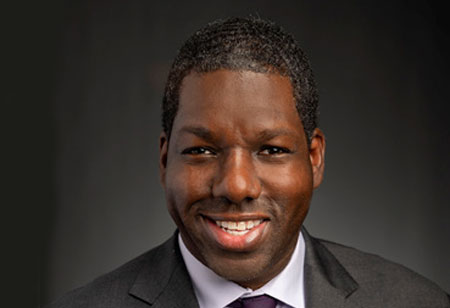Thank you for Subscribing to Healthcare Business Review Weekly Brief

Balancing Technology and Humanity in Healthcare Leadership
Healthcare Business Review
Dr. Richard A. Phillips serves as the Chief Medical Officer of Baptist Health Floyd, part of the Baptist Health system headquartered in Louisville, KY. Originally hailing from New York City, Dr. Phillips has dedicated 15 years to practicing emergency medicine in the Chicagoland area prior to joining the Baptist Health Floyd leadership team. With a firm belief in servant leadership and an unwavering commitment to patient care, he looks forward to making a significant contribution to the Louisville metropolitan community. Dr. Phillips graduated from the University of Chicago Booth School of Business and Pritzker School of Medicine before completing his medical training at the Harvard Affiliated Emergency Medicine Residency (HAEMR) in Boston.
When I reflect on my journey in the medical field, one of the most important aspects of my leadership style has been the adoption of the servant leadership model. This approach has guided me from my days as an emergency medicine physician to my current role as the Chief Medical Officer at Baptist Health Floyd. My motivation for entering medicine was rooted in the desire to serve—to treat every patient, regardless of who they are or their ability to pay, with the utmost respect and care. This principle continues to shape my approach to leadership, where I focus on serving my team so that they can perform at their best and, in turn, provide exceptional care to our patients.
One of the significant challenges in the realm of medical technology is that it has traditionally relied heavily on human input. For instance, the Electronic Health Record (EHR), while a revolutionary tool in documenting and providing visibility into patient care, has often required our highest-paid professionals—clinicians and nurses—to spend considerable time on data entry. This, I believe, detracts from the critical face-to-face interaction that is so essential during a patient’s time of need. At Baptist Health, we are striving to shift this dynamic by leveraging conversational ambient and generative AI technologies. These advancements are designed to assist with documentation and clinical decision-making, thereby allowing our medical professionals to focus more on direct patient care. I see a tremendous opportunity to further integrate these technologies into our practice, especially in using clinical decision support tools embedded within the EHR to make more informed and evidence-based clinical decisions.
When it comes to technology in healthcare, my guiding principle has always been to prioritize people. Technology is a tool—an enabler—not an end in itself
In my current role, collaboration is key to improving patient outcomes and delivering high-quality care. We have instituted high-quality multidisciplinary rounds where clinicians, nurses, pharmacists, and case managers work together on every patient’s care plan. This collaborative approach ensures that we consider not just the medical needs of the patient but also the social determinants of health that often play a critical role in their overall wellbeing. Our case management teams, which often include case managers and social workers, have the expertise to tap into external resources that can support our most vulnerable patients. Another noteworthy initiative we’ve implemented is the "meds to beds" program, which ensures that patients receive their prescribed medications directly at discharge, reducing the risk of noncompliance. Additionally, recognizing the transportation challenges that some of our patients face, we’ve introduced a transportation service to ensure they can attend their follow-up appointments, which is vital in preventing readmissions.
Cultivating a culture of patient-centered care is fundamental to our mission at Baptist Health Floyd. As a faith-based organization, we adhere to six core values: integrity, respect, compassion, excellence, cooperation, and joy. These values are embedded in everything we do, guiding how we interact with patients and each other. Integrity, for example, holds us accountable to always do the right thing, even when no one is watching, which builds trust with our patients. Respect and compassion are about valuing every human life and treating each person with empathy. Excellence means we hold ourselves to the highest standards in clinical care. Cooperation emphasizes the importance of teamwork across all levels of and functions within our organization, while joy is about ensuring that our team members find fulfillment in their work, knowing that their efforts are making a difference.
When it comes to technology in healthcare, my guiding principle has always been to prioritize people. Technology is a tool—an enabler—not an end in itself. The real value of any technological advancement, whether it’s an EHR or a smartphone, lies in its ability to enhance human connections, be it between clinicians and patients or among team members. It’s crucial that we don’t lose sight of this human element amidst the allure of new and shiny technologies.
Lastly, if I were to offer advice to fellow professionals aspiring to leadership roles, it would be this: always put people first. Leadership is never about you; it’s about those you serve—your patients, your employees, your coworkers. If you make people your North Star, you will excel in any leadership position.









